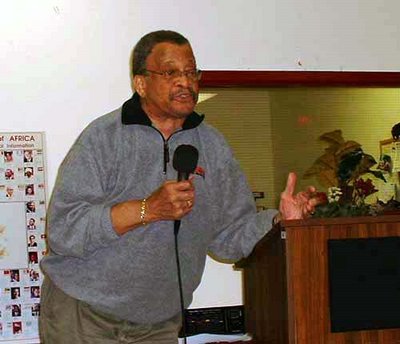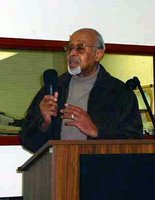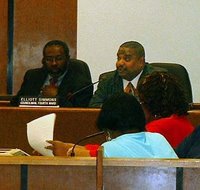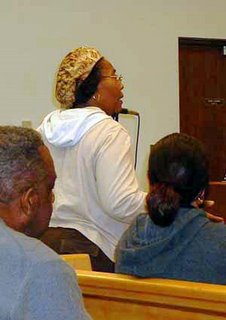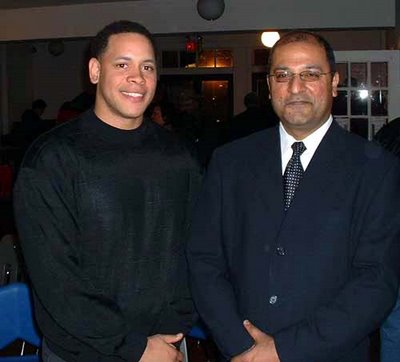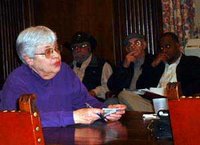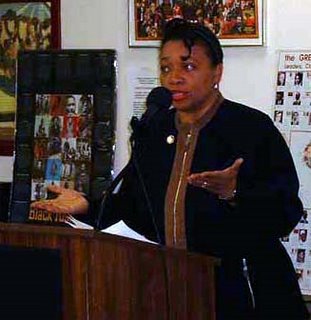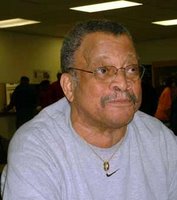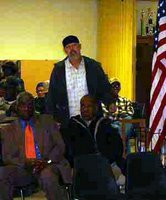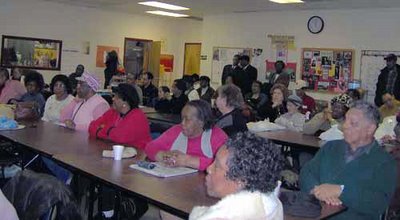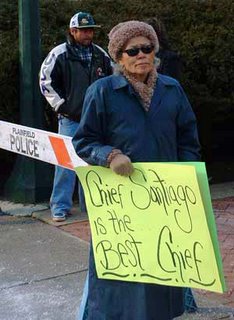Park To Get Official Designation
The City Council will vote Monday (April 3, 2006) on granting the park official status and a place on its roster of Green Acres sites. The meeting is 8 p.m. .
in Municipal Court, 325 Watchung Ave.
The Plainwood Square Merchants Association promoted development of the park, which is near the east border of the city. Association President Donna Albanese said ground was broken in 2000. A former two-way side road that looped around the plot was made one-way, increasing the park space by 40 percent. The park was landscaped with a plaza and benches surrounding a fountain.
“It’s the gateway to the city,” Albanese said.
Throughout the summer and fall, the park has become a favorite venue for concerts, community gatherings and more recently, the Plainfield Idol competitions.
“It means a great deal to the merchants,” Albanese said, calling it “a symbol of the effort of the business community.”
The South Avenue business district and the traditional downtown blocks on Front Street are the city’s main commercial areas, with the downtown dominated by retail establishments and South Avenue being known as “Restaurant Row” for its wide-ranging take-out or fine dining choices.
Albanese said the 50-member merchants’ association has made commitments of finances, time and effort to make the park a success.
“The city recognized the efforts that were made, and they’re appreciated,” she said.
People driving past the park in summer have been amazed to see banana trees and other tropical additions to the plantings. Albanese said city resident Fred Judith has voluntarily donated exotic plants each year.
Judith, who spends winters in Fort Lauderdale, Fla. and summers in Plainfield, said he found the initial plantings in the park a bit mundane. He replaced the shrubs with his own choices of magnolias, crape myrtles, laurels and Virginia sweet spire. During hot weather, he has planted exotic banana trees, pink angel’s trumpets and elephant ears.
Judith said the angel trumpets, also known as datura, are covered every three weeks with bell-shaped flowers that release fragrance at night. The owner of a landscaping service called Landplan, Judith also stops traffic on nearby East Seventh Street with exotic plantings in his own front yard. He jokes that in late summer it is known as the “Chiquita Banana” house.
As for the park, he says, “I just wanted to do something fun.“
The South Avenue merchants and the Friends of Sleepy Hollow neighborhood organization pressed for the successful restoration of the Netherwood train station and the reconstruction of the South Avenue roadway, which featured “bump-outs” to provide slowing of traffic and additional safety for pedestrians.
Albanese said residents have responded positively to the merchants’ campaign to get people to “shop Plainfield.”
With the park designation capping their efforts, Albanese said, “It’s been years coming and we’re very happy that the day has arrived.”
--Bernice Paglia
KEYWORDS: park, green acres
